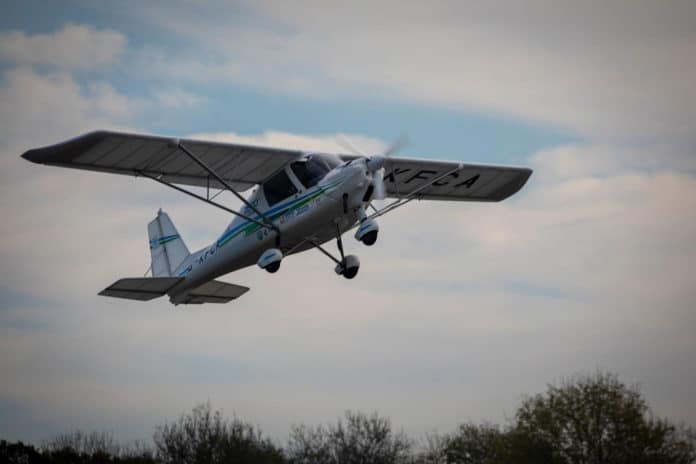The Royal Air Force (RAF) has set a new Guinness World Record for the world’s first successful flight using only synthetic fuel, opening the way to the potential for zero carbon aviation. In a world-first, an Ikarus C42 microlight aircraft flown by Group Captain Peter Hackett completed a short flight powered by synthetic gasoline at Cotswold Airport earlier this month.
The synthetic UL91 fuel is made by London-based Zero Petroleum using hydrogen extracted from water and carbon extracted from atmospheric carbon dioxide. Using energy generated from renewable sources like wind or solar, these are combined to create synthetic fuel. This innovation is part of the RAF’s Project MARTIN and has the potential to save 80-90% of carbon per flight, according to the Ministry of Defence.
“Whilst green technologies like electric and hydrogen power generation are viable for many RAF platforms, high-performance aircraft require a liquid fuel alternative, like the UL91, to maintain operational capabilities,” said Jeremy Quin, Minister for Defence Procurement. MoD says this is the first innovation of many, with a range of research and development activities underway to consider the viability of synthetic fuels without compromising aircraft performance.
Before the ground-breaking flight, the synthetic fuel was tested extensively with CFS Aero. The engine performed as if it were running fossil fuel but ran at a lower temperature, which means using synthetic fuel could also increase engine lifespan as well as a significant carbon saving.
“This unique project with the Royal Air Force demonstrates the validity of our synthetic fuel and the potential it has to eliminate fossil CO2 emissions from a number of difficult but critical sectors, including transport which currently accounts for 23% of the global total,” said Paddy Lowe, CEO Zero Petroleum. “We are particularly proud of the fact that our high-grade aviation gasoline ZERO SynAvGas was developed in just five months and ran successfully in the aircraft as a whole-blend without any modification whatsoever to the aircraft or the engine. The engine manufacturer Rotax’s measurements and the test pilot’s observations showed no difference in power or general performance compared to standard fossil fuel.”
The breakthrough in synthetic fuel underscores the MOD’s solution-based approach to addressing climate change issues whilst remaining agile in a world of evolving threats. Working towards the Government’s Net-Zero by 2050 goal, the RAF plans for their first Net Zero airbase by 2025 and goal of a Net Zero force by 2040.
